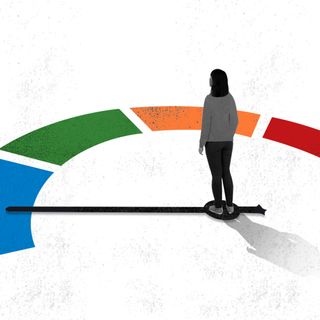
Early‑Life Trauma May Speed Up Aging in Adults, Study Suggests
Traumatic events encountered during childhood can lead to damage in cells, tissues, and organs.

An analysis of data from a long-term study on middle-aged to older Canadian adults has helped researchers establish new links in the relation between difficult childhoods and rapid biological aging in adulthood. A new study, published in the journal Psychoneuroendocrinology, found that biological age — the change in the cells, tissues, and organs of our body — was higher among respondents who had faced potentially traumatic events such as abuse, neglect, or being witness to intimate partner violence, etc. before their adulthood. Analyzing over 23,000 participants, the research found that those who experienced more severe forms of childhood adversities showed stronger signs of rapid biological aging as adults. The researchers wanted to explore whether rapid biological aging could help understand the connection between dealing with poor health outcomes in adult life and facing adverse childhood experiences.
The Center for Disease Control and Prevention, United States of America defines adverse childhood experiences (ACEs) as potentially traumatic events that occur in childhood (0-17 years of age). They identify 10 different forms of ACEs : physical, sexual, and psychological abuse; physical and psychological neglect; having a close family member with substance abuse history and/or mental health issues, and/or having a close family member who has spent prison time; witnessing parental separation or divorce; and witnessing domestic violence. There is evidence that facing ACEs can impact our health, leading to toxic stress and other mental health issues. Additionally, in the past, research has also focused specifically on aging in women and its link with their history of facing ACEs. ACEs have also been found to lead to more adverse physical health issues such as cancer and heart disease.
For their study linking biological aging to ACEs, the researchers analyzed data from the Canadian Longitudinal Study on Aging, comprising 50,000 participants across the country, aged between 45 and 85 at the time of commencement, for long-term research of at least 20 years. The researchers focused on a subset of nearly half of the participants, who had taken part in physical and clinical examinations and finished a 90-minute interview. The researchers inspected a number of biomarkers in their respondents, linked to the biological process of aging. These included checking levels of albumin, creatinine, glycated hemoglobin, C-reactive protein, and calculating lymphocyte percentage, mean cell volume, red blood cell distribution width, and white blood cell count, in the participants.
Related on TheSwaddle:
Repeated Exposure to Trauma Does Not Make People Stronger, Shows New Study
The researchers found that about 63% of the participants reported having faced at least one potentially traumatizing event in their childhood. Reporting on their findings to Psypost, Dr Chris P Verschoor, one of the co-authors, said “harms in early life can take many forms, and can lead to health consequences many years down the road… these consequences manifest as perturbations to multiple biological systems, which can be measured from biomarkers in blood.” Verschoor also commented on the specific aim of their study, “to quantify how different forms of early life adversity impact the ‘biological age’ of a person 30 to 60 years later.” Although a continuation in the larger body of research on the impact of ACEs on our health, the specific focus on a time frame of 30 to 60 years after end of childhood sets this study apart from others that looked at links between ACEs and ageing, including one which established an earlier onset of puberty among those who lived through difficult childhoods.
Speaking about the limitations of the study, the researchers noted that most of the effect-sizes — a measure of the magnitude in difference in a medical experiment — they observed were relatively small. “What our study doesn’t show is whether the biological changes we detected were caused by the early life events themselves, or from other events or risky behaviors that happened later in life as a consequence,” explained Verschoor. The researchers added that future research that made use of longitudinal data could help explain the links understand the links between ACEs and biological age more concretely.
ACEs are a common occurrence in societies across the world. Data from the US and UK tells us that in both these countries, more than half the population has faced at least one ACE while growing up. Apart from hugely affecting the mental and physical health of survivors, ACEs can pass from one generation to the next in an epigenetic manner, creating a cycle of intergenerational trauma and pain. Coping mechanisms to ACE may include drug abuse and alcoholism, which in turn add their own set of physiological and psychological challenges. Verschoor and colleagues’ study linking ACEs to long-term health issues even 30-60 years after entering adulthood is yet another important reminder that the scars of our childhood can be truly everlasting.
Amlan Sarkar is a staff writer at TheSwaddle. He writes about the intersection between pop culture and politics. You can reach him on Instagram @amlansarkr.
Related


People With Low BMIs Aren’t Necessarily More Physically Active, Shows Study
